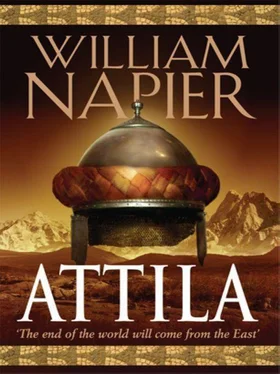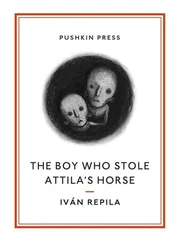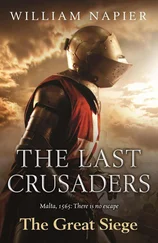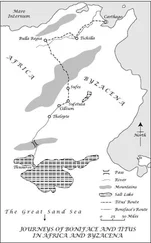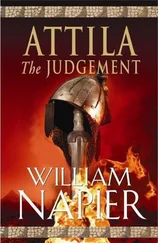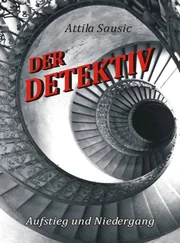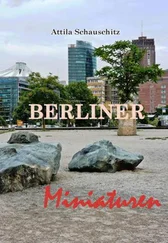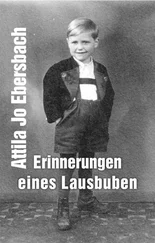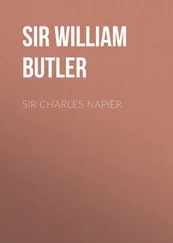William Napier - Attila
Здесь есть возможность читать онлайн «William Napier - Attila» весь текст электронной книги совершенно бесплатно (целиком полную версию без сокращений). В некоторых случаях можно слушать аудио, скачать через торрент в формате fb2 и присутствует краткое содержание. Жанр: Исторические приключения, на английском языке. Описание произведения, (предисловие) а так же отзывы посетителей доступны на портале библиотеки ЛибКат.
- Название:Attila
- Автор:
- Жанр:
- Год:неизвестен
- ISBN:нет данных
- Рейтинг книги:5 / 5. Голосов: 1
-
Избранное:Добавить в избранное
- Отзывы:
-
Ваша оценка:
- 100
- 1
- 2
- 3
- 4
- 5
Attila: краткое содержание, описание и аннотация
Предлагаем к чтению аннотацию, описание, краткое содержание или предисловие (зависит от того, что написал сам автор книги «Attila»). Если вы не нашли необходимую информацию о книге — напишите в комментариях, мы постараемся отыскать её.
Attila — читать онлайн бесплатно полную книгу (весь текст) целиком
Ниже представлен текст книги, разбитый по страницам. Система сохранения места последней прочитанной страницы, позволяет с удобством читать онлайн бесплатно книгу «Attila», без необходимости каждый раз заново искать на чём Вы остановились. Поставьте закладку, и сможете в любой момент перейти на страницу, на которой закончили чтение.
Интервал:
Закладка:
Close behind him rode more of his kind, his personal bodyguard; they, too, were clad in dusty and unkempt animal furs, bristled with weaponry, and rode small, fierce-eyed ponies. The neat, prancing hooves kicked up plumes of dust as they rode, and the open-mouthed bystanders could smell leather and horses and sweat as they passed: something alien and animal, something vast and untamed, from far beyond the orderly frontiers of Rome.
Some of Uldin’s horsemen looked to left and right as they rode past, meeting the challenge of the Roman citizens’ gaze with equal curiosity. Uldin himself kept his gaze steadfastly ahead, but his men could not help but stare around, and upward, at the monumental buildings of the city; buildings of a size and grandeur their imaginations could barely grasp. Even the humblest buildings, the blocks of flats inhabited by the poorest in Rome, towered higher than anything the horsemen had ever seen built by the hand of man before. Then there were the palaces of patricians and emperors, the grand and triumphal basilicas, their windows filled with stuff called glass, which let in the light and heat but not the cold. Opaque sheets of blue or green ice which didn’t melt in the sun, utterly mysterious to them.
The fantastical, overwrought Baths of Diocletian and of Caracalla, decorated with marble of every conceivable colour and shade: yellow and orange from Libya, pink from Euboea, blood-red and brilliant green from Egypt, along with the precious onyx and porphyry of the east. Then the Pantheon, the Colosseum, the Forum of Trajan and the Arch of Titus, and the great temples to the Roman gods, whose treasuries contained, so it was rumoured, the gold of half the world…
Nevertheless, the people of Rome resumed their cheering readily enough as the barbarian horsemen passed on, acknowledging, however uneasily, that it was only thanks to the alliance with these strangers that Rome had been saved.
Only the most dandyish of the aristocrats turned their delicate noses up, and covered their mouths in little white cloths impregnated with oil of lavender. Some of them carried silk parasols seamed with golden thread, to protect their fair skins from the sun, and, pointing towards the Hun horsemen, joked that, after all, one didn’t want to look as sunburnt as that. Such dandies wore light silken robes embroidered with extravagant scenes of hunting or wild animals; or, if they wanted to display their piety, perhaps the martyrdom of a favourite saint. What the stern old Roman heroes would have said, how Cato the Censor would have raged, one could only speculate. These epigones, these degenerates…
What the Huns themselves must have judged of them, and of Rome herself therefore, one can only imagine.
Many a member of the patrician classes, it was said, had not remained in Rome to see the triumph. With an airy and languid gesture, they had drawled that the city would be too hot and too crowded with plebs and, still worse, barbarian horsemen, to be bearable. The smell would be simply ghastly. And they had taken their leave and gone down with their friends to the Lucrine Lake, on the Gulf of Puteoli, to lie exhausted in their painted galleys and sip their goblets of Falernian wine chilled with handfuls of snow brought down in jars by slaves from the heights of Vesuvius. And reclining in their galleys, with other slaves softly playing stringed instruments, perhaps, they would trail their delicate hands in the cooling waters and gaze towards the island of Ischia and sigh for the days of their youth. Or of Rome’s youth. Or of any days but these, and anywhere but here. Anything but these hard days and these demanding times.
From the steps of the palace, the imperial household looked on. At their head stood the poised, expressionless figure of Princess Galla, her robe today a brilliant saffron yellow. The rest of the household seemed to stretch away from her on either side; and in the far corner, near Serena, stood a small, hunched and fiercely scowling boy.
‘Hey, short-arse! Oi!’
The boy looked left and his scowl deepened further. It was a couple of the other hostages, the Frankish children, calling across to him through the throng.
‘You want to push through to the front! You won’t see anything but people’s ankles where you are!’ And the tall, fair children laughed.
He was about to advance towards them, teeth clenched, when he felt Serena’s hand on his shoulder, turning him gently but firmly back towards the spectacle parading before them.
As General Stilicho passed by, grave on his fine white horse, he turned and bowed to Princess Galla, and managed also to catch the eye of his wife: the slightest smile passed between them.
Stilicho was interrupted by Uldin’s voice at his side, asking in jagged and broken Latin who was the boy on the steps with the bandaged eye. Stilicho glanced over his shoulder and caught sight of him, just as he vanished from view. He turned back and smiled broadly.
‘That is Attila, son of Mundzuk, son of-’
‘The son of my son. I knew him.’ Uldin, too, grinned broadly. Then he asked, ‘What hostages do we have in return?’
‘A lad called Aetius – the same age as Attila, and the oldest son of one Gaudentius, master-general of the cavalry.’
The King of the Huns glanced sideways at Stilicho. ‘The same Gaudentius who…?’
‘So rumour has it,’ said Stilicho. ‘But you know about rumour.’
Uldin nodded. ‘Why is his eye bandaged? The son of Mundzuk?’
Stilicho didn’t know. ‘He is always getting himself into scrapes,’ he shrugged. ‘My young wolf-cub,’ he added softly, more to himself than Uldin. Then he wiped the affectionate smile from his face, and reassumed the expression of soldierly gravity that befitted the dignity of a general at a Roman triumph.
Somewhere among the triumph rode the emperor himself, on an immaculate, plumed white mare: young Honorius in his robes of purple and gold. But few people noticed. He made little impression.
From the Palatine steps, Princess Galla gazed out over the triumph.
After the procession, and the interminable speeches and eulogies, and the solemn service of thanksgiving to God in the Church of St Peter, there were triumphal games in the Colosseum.
As with the closing of the pagan temples by Emperor Theodosius a generation or two earlier, and the banning of blood sacrifices, the Christians had on many occasions tried to bring the games to an end. This was not on account of the cruelty so much as because the crowd derived too much base pleasure from the spectacle; and also because, on the days when the games were held, so many rouged and painted whores congregated beneath the arches of the Colosseum, pouting their lips and baring their wanton breasts and thighs at passers-by, that a Christian man hardly knew where to look. And as for a Christian lady. ..
Only four years before, in the year of Our Lord 404, a certain eastern monk called Telemachus, with all the glittering-eyed fanaticism of his kind, had thrown himself into the arena from the steps above, in protest at the disgusting spectacle taking place. The rabble, true to form, promptly stoned him to death where he knelt. For they did love their sports and games, the common people. But later, with that fickleness of mind and heart which is typical of the unwashed and unlettered multitude, they cried out their sorrow and repentance for what they had done. And the youthful and impressionable Emperor Honorius promptly issued a decree that all games were henceforth abolished.
Unfortunately, like so many of his decrees, this one was widely ignored. Soon enough the games had crept back into the arena, and the crowd’s appetite for blood and spectacle was renewed. And on this day in August, only four years later, it was Emperor Honorius himself who declared the triumphal games open.
Читать дальшеИнтервал:
Закладка:
Похожие книги на «Attila»
Представляем Вашему вниманию похожие книги на «Attila» списком для выбора. Мы отобрали схожую по названию и смыслу литературу в надежде предоставить читателям больше вариантов отыскать новые, интересные, ещё непрочитанные произведения.
Обсуждение, отзывы о книге «Attila» и просто собственные мнения читателей. Оставьте ваши комментарии, напишите, что Вы думаете о произведении, его смысле или главных героях. Укажите что конкретно понравилось, а что нет, и почему Вы так считаете.
